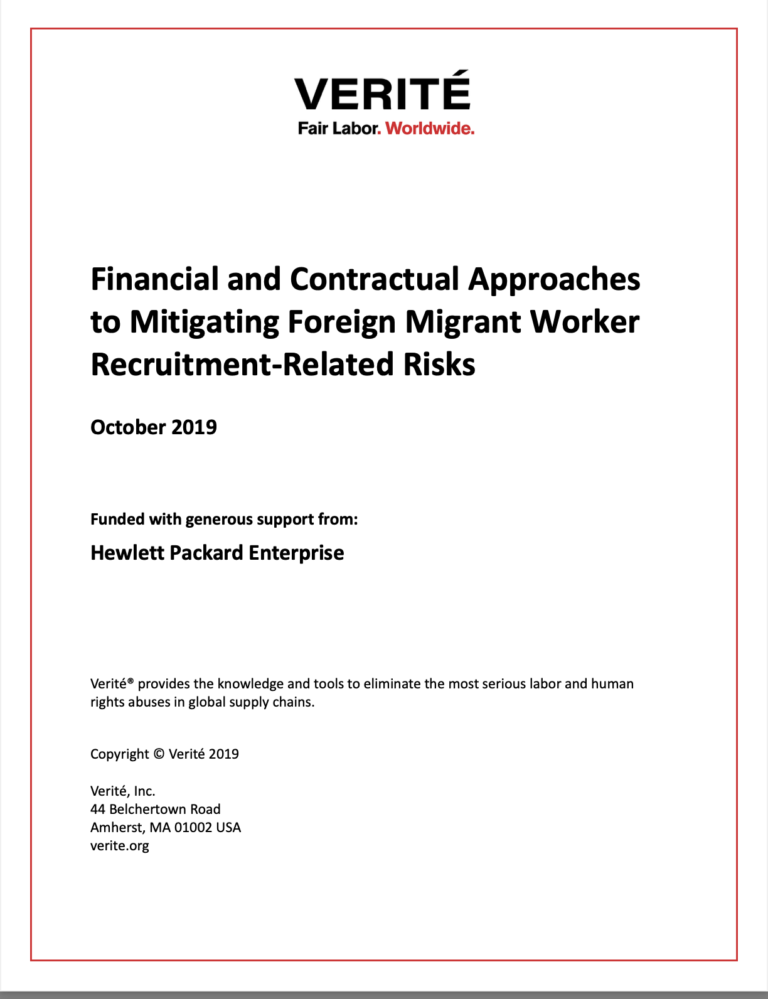Foreign migrant workers are often faced with a choice: pay illegal or unethical recruitment fees for a job abroad or go without work altogether. To finance these exorbitant costs, which can be as high as USD 6,000 in some migration corridors, they often take out loans. The resulting debts, borne by workers over the course of their employment term, significantly increase workers’ vulnerability to debt bondage and are a root cause of forced labor globally. In Verité’s experience, the charging of recruitment fees and expenses to migrant workers is the most significant contributor to the persistence of debt bondage, the manifestation of forced labor, or “modern slavery” most frequently encountered in global supply chains today.
In recent years, a growing number of multinational corporations (MNCs) and their suppliers have begun to adopt “Employer Pays” and “No-Fees to Workers” recruitment policies and practices. When enforced, these policies help to ensure that employers in supply chains absorb the true cost of recruitment and prohibit the charging of recruitment costs to workers, in accordance with international standards and regulations. If workers are charged recruitment costs, ideally, remediation would be initiated to provide for the prompt reimbursement of the full amount to workers. But that is only when the policy is enforced, and employers and recruitment agents are held accountable.

